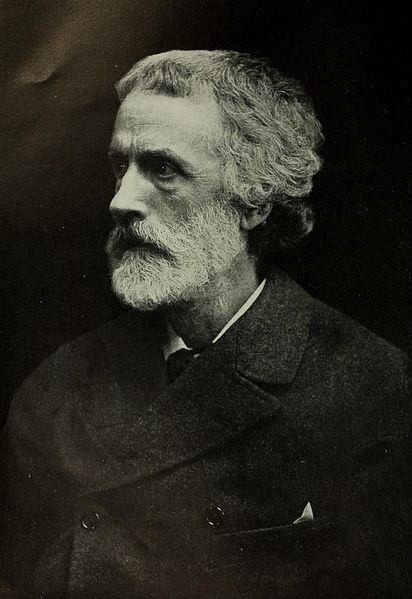George Meredith was an English novelist and poet of the Victorian era. At first, his focus was poetry, influenced by John Keats among others, but Meredith gradually established a reputation as a novelist. The Ordeal of Richard Feverel (1859) briefly scandalised Victorian literary circles. Of his later novels, the most enduring is The Egoist (1879), though in his lifetime his greatest success was Diana of the Crossways (1885). His novels were innovative in their attention to characters' psychology, and also portrayed social change. His style, in both poetry and prose, was noted for its syntactic complexity; Oscar Wilde likened it to "chaos illumined by brilliant flashes of lightning". Meredith was an encourager of other novelists, as well as an influence on them; among those to benefit were Robert Louis Stevenson and George Gissing. Meredith was nominated for the Nobel Prize in Literature seven times.
Meredith in 1893 by George Frederic Watts
The Death of Chatterton by Henry Wallis, Birmingham Museum and Art Gallery version, for which Meredith posed in 1856
"Our First Novelist" Meredith as caricatured by Max Beerbohm in Vanity Fair, September 1896
George Meredith in middle age
The Ordeal of Richard Feverel
The Ordeal of Richard Feverel: A History of Father and Son (1859) is the earliest full-length novel by George Meredith; its subject is the inability of systems of education to control human passions. It is one of a select group of standard texts that have been included in all four of Everyman's Library (1935), the New American Library of World Literature (1961), Oxford World's Classics (1984), and Penguin Classics (1998). With its rigorous psychological analysis and criticism of contemporary attitudes toward sexuality, it has been seen by some critics as the first modern novel in English literature.
First edition title page





